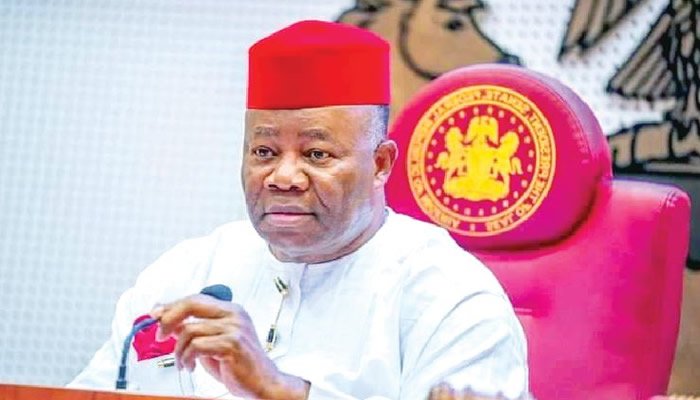The Minister of Aviation and Aerospace Development, Festus Keyamo, has advised state governors to privatise or commercialise airports that are not economically viable in their states.
Speaking,, Keyamo noted that the construction of an airport “will in the first place be for social infrastructure” before attaining commercial benefits.
The minister’s comment came amid growing concerns over the increasing number of airport construction in the country.
At least 12 states have reportedly completed the construction of their airports, while several others are still building.
Altogether, 19 states were said to have invested an estimated N369.4 billion in the projects.
Some of the airports include, Asaba Airport; Bayelsa International Airport, Yenagoa; Ogun Cargo Airport; Ekiti Cargo Airport, Ado-Ekiti; Anambra Cargo Airport, Umuleri; Wachakal Airport, Yobe; Gombe Airport; Dutse International Airport, Jigawa; Kebbi Airport; Jalingo Airport, Taraba; Nasarawa Airport; Cross Rivers International Cargo Airport and Zamfara Airport.
Findings revealed that ongoing airport projects include, the MKO Abiola International Airport, Osun; Abia Airport; Lekki/Epe Airport, Lagos; and Auchi Airport in Edo.
The Managing Director of the Federal Airports Authority of Nigeria, Olubunmi Kuku, recently revealed that only three of the 22 airports managed by FAAN were profitable.
The others, she noted, depend on cross-subsidisation to stay operational.
Speaking to the issue, Keyamo urged state governments to explore the commercial potential of airport environments by having a concession on the non-aeronautical aspects, such as shopping complexes and recreational facilities to private investors.
“They (Governors) should commercialise or privatise those airports. You can do other business in the airport environment. The non-aeronautical part of the airport should be generating funds just to keep that airport active. They should have a concession on those areas,” he said.
While acknowledging that airports were not primarily built for profit, Keyamo stressed their strategic value as tools for economic and social development.
“Airports are not built to make profit in the first instance; they are there firstly for economic and social infrastructure. An airport is supposed to be the precursor to the development of an area. It is supposed to attract economic activities. It is the first sign of development,” he added.
He drew examples from the UK and Europe where small airports exist in remote areas with minimal activity but serve long-term development goals.
The minister said, “If someone is considering building a five-star hotel in the area, they will likely back out if there is no airport to facilitate access. Expecting returns on such infrastructure within five or 10 years is unrealistic.
“Some airports in London have existed for over a century. Across the UK and Europe, even remote locations often have small airports or landing strips to support gradual development.”
Keyamo, however, maintained that with time and the right strategies, struggling airports could become profitable and drive regional growth.
“So long you have a functional runway, and a terminal building, the profits and the benefits will come. It may not be today, tomorrow or five years’ time, they should be patient,” he added.




